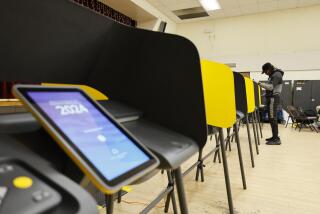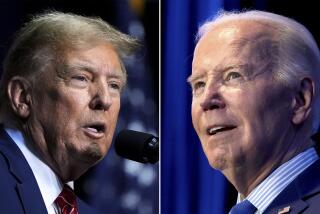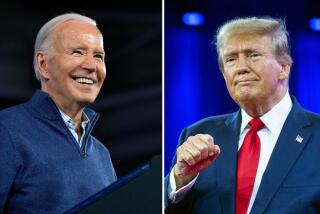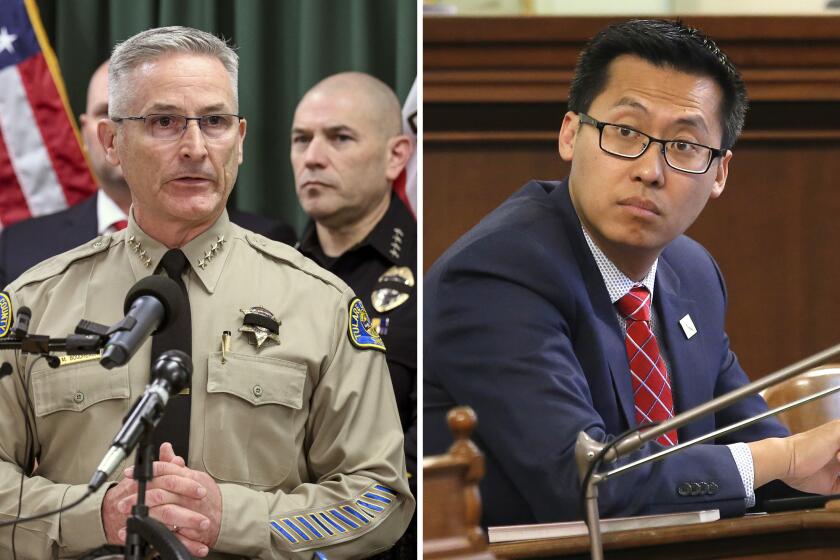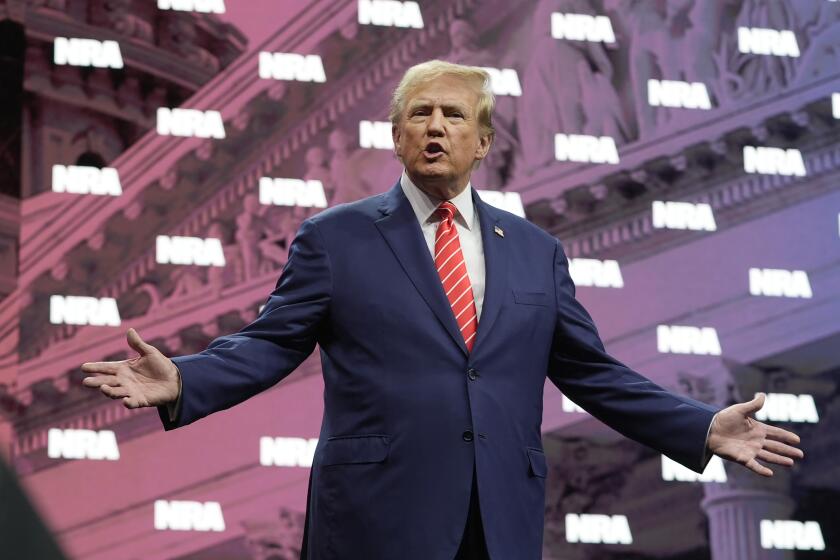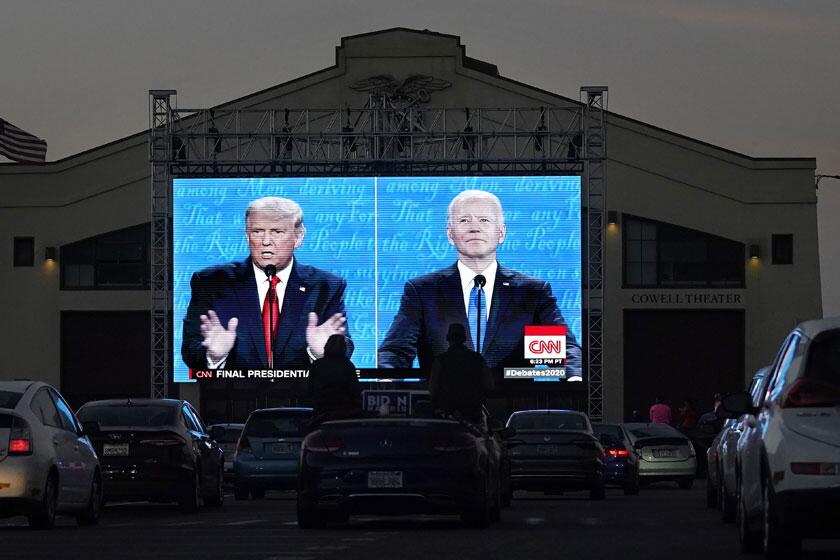Mistrust, fights and blood sport: How COVID-19 trauma is shaping the 2024 election

Much of the country has moved on from the COVID-19 pandemic, but Ruth and Mohammed Nasrullah keep a vigil from their Houston home, posting thousands of pictures and stories of those who have fallen: coaches, tax clerks, teachers, autoworkers and graphic designers.
“We spend our time immersed in death,” Ruth said of the couple’s COVID-19 Wall of Memories, which went on online when graveyards were widening and fear was spreading in January 2021. The wall holds more than 21,000 photographs and histories of those who died. “It gives us perspective. We’ve seen an arc of change in COVID response and grief.”
The pandemic is fading and Americans want to forget, said Mohammed. But people are still dying and the fallout from the virus is playing into attitudes over the divisive state of the country and its politics.
The coronavirus is seldom mentioned by the campaigns of President Biden and Donald Trump, even though its impact on voters and the way the pandemic altered how we live, work, die and mourn has been profound. It accelerated mistrust in government and institutions, emptied downtowns of workers, sparked fights over masks and science, turned school board meetings into political blood sport, hardened the lines between red and blue states and ignited a mental health crisis.
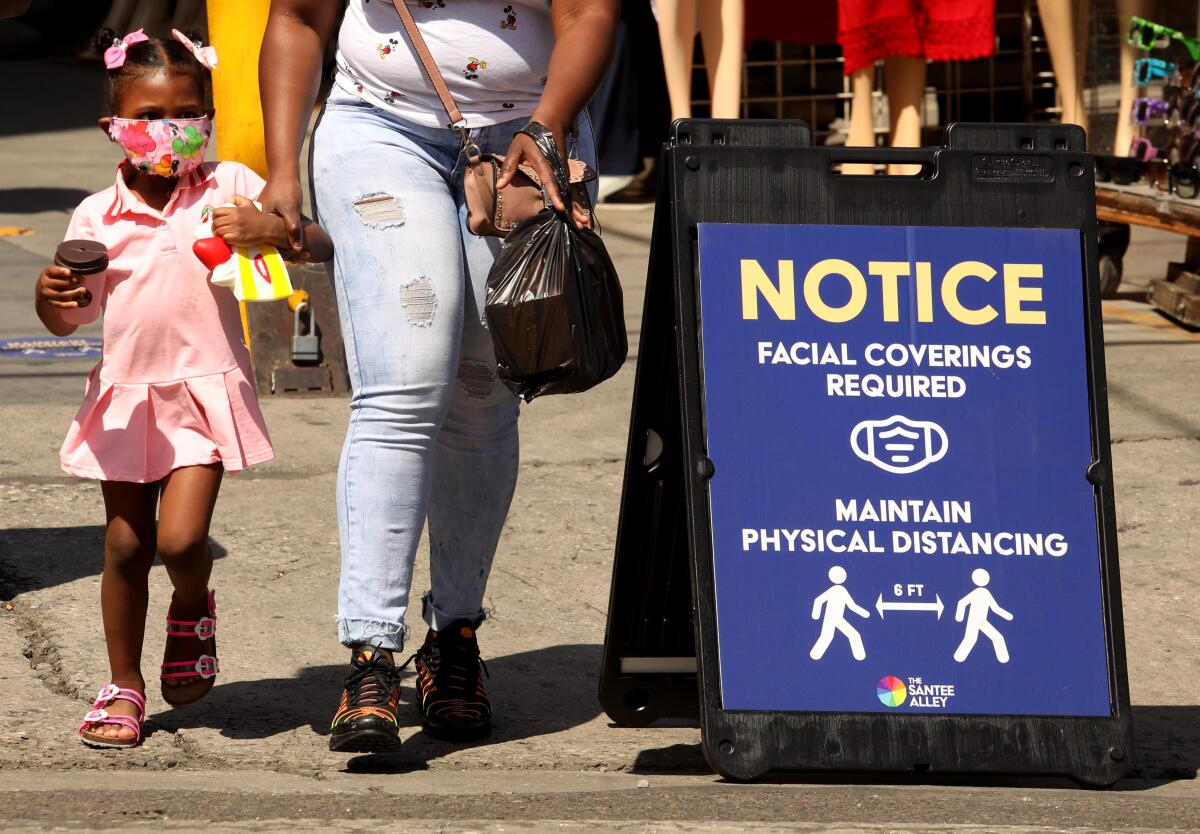
The lingering trauma — 1.2 million people died in the U.S. and an estimated 17 million suffer from long COVID — echoes through issues confronting voters, including inflation, education, crime, immigration and the unease many have for the future. These challenges are shaping a presidential rematch between two candidates most Americans don’t want at a time when the nation appears trapped in a despairing loop of restiveness and uncertainty over the fate of democracy and an economy that has raised rents and kept food prices stubbornly high.
“Society has become more disillusioned over the government’s ability to take on larger issues. The pool of people distrusting the government has gotten larger,” said Kristin Urquiza, who co-founded Marked By COVID, which is calling for an accounting of the government’s pandemic response and establishing a National COVID Memorial. “The pandemic exacerbated everything.”
It wasn’t that long ago that the country and the world slipped through the looking glass. Preachers warned of the end of days. Hospitals filled, ventilators failed and refrigerated trucks were stacked with corpses. The isolated and the lonely sang from windows and balconies. Final goodbyes were spoken over video links and smartphones. No one knew when it would end as collective grief and anger settled in amid news of broken supply chains and the latest from Wuhan, the city in China from where death crossed oceans and borders.
“It completely shifted our lives,” said Natalie Jackson, vice president of the polling firm GQR. “There are ways society has changed that we’re not totally aware of. Historians in a couple of decades will be able to tell us a lot more about how our behavior changed that we’re not able to understand right now.”
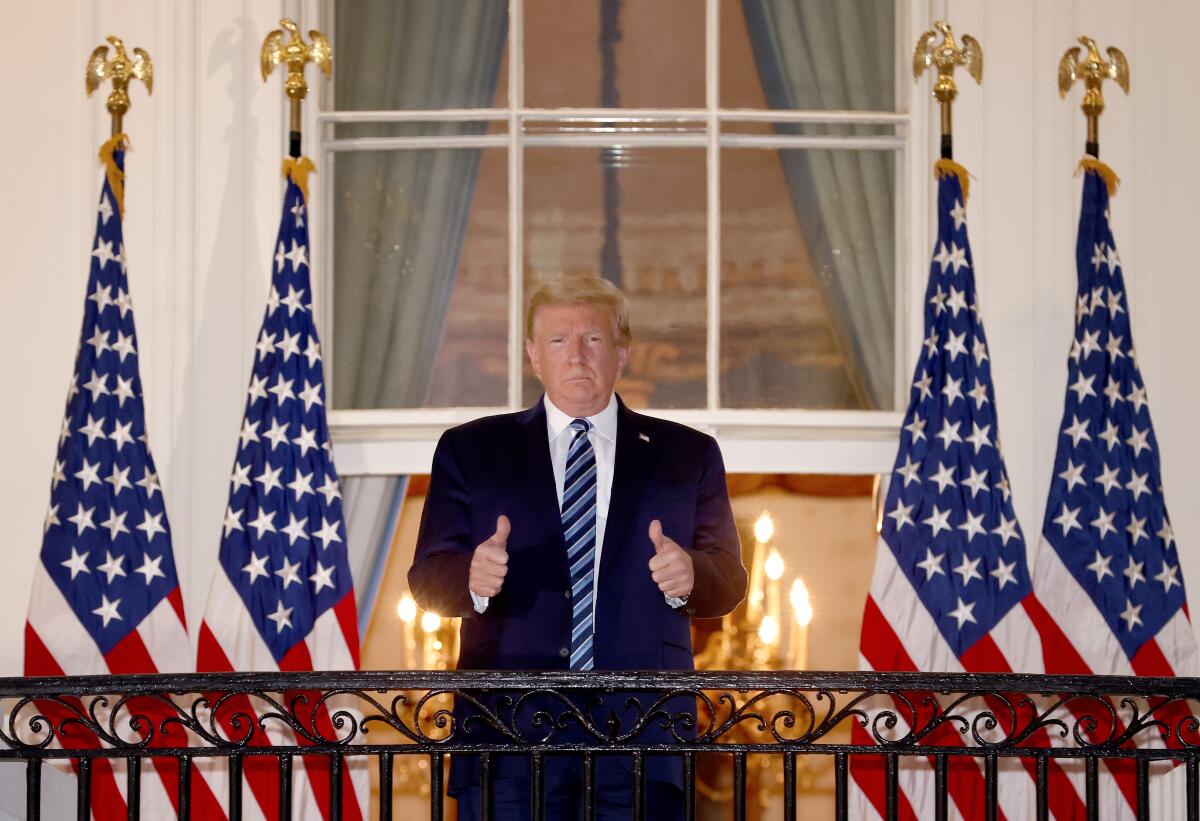
Former President Trump — who suggested injecting disinfectant to kill the virus in April 2020 — doesn’t reflect much on the early days of the pandemic, when his administration was criticized for its slow response. Instead, he tells voters, as he did at a recent rally, that America under his leadership was “stronger and tougher and richer and safer and more confident.” President Biden also seldom speaks of COVID, but he recently chided Trump’s handling of the outbreak when he told donors, “I hope everyone in the country takes a moment to think back when it was like in March of 2020.”
Biden, meanwhile, is contending with the consequences of his own pandemic policies.
His administration averted economic catastrophe by pushing through at least $5 trillion in stimulus checks, child tax credits and loans to help families, small businesses, airlines, local governments and others lessen the ravages of the pandemic. Those protections largely stopped as jobs and the economy began to recover. But the loss of subsidies collided with a sharp jump in inflation. That overall rate has fallen to 3.5%. But steep prices have remained a persistent burden — home mortgage interest rates are around 7.3% — on household incomes and are a constant target by Trump against Biden.
“That’s the problem Biden faces,” said Mark DiCamillo, director of the Berkeley IGS Poll. “It was inevitable that after all those price controls were gone people would notice. That’s the lasting impact of the pandemic.”
A recent survey by the Pew Research Center found that 73% of Americans believe the economy should be the top priority of the next president and Congress. The cost of living is particularly pronounced in California where inflation, high interest rates and escalating rents are demoralizing the working and middle classes. “We’re seeing it in spades,” said DiCamillo. “The American dream seems to be out of reach for renters, and homeowners are stuck.”
The pandemic also changed the dynamics of the nation’s long-standing failure to fix a broken immigration system, which became further politicized in 2022 when busloads of migrants sent from Texas and Florida began appearing in traditionally Democratic controlled cities like Los Angeles, Chicago, New York and Martha’s Vineyard, Mass.
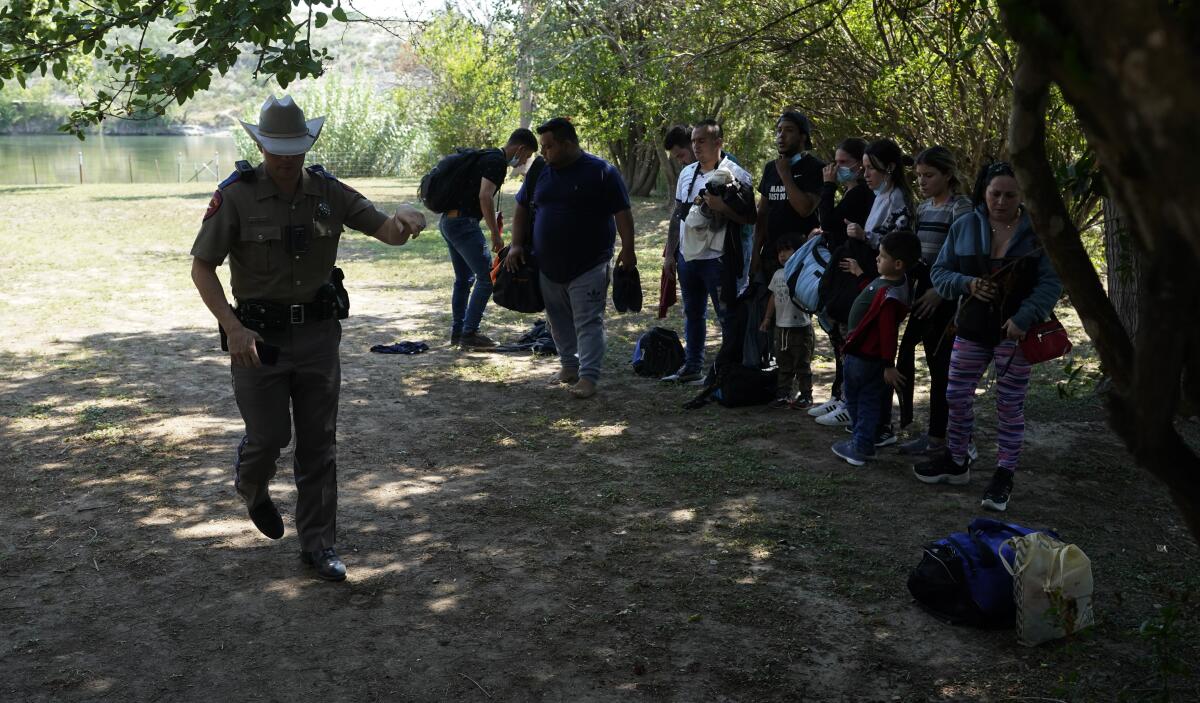
Trump-era restrictions on immigration to prevent the spread of the virus during the pandemic, notably Title 42, limited the influx of illegal migrants. A loosening of those policies by the Biden administration resulted in a record surge of illegal border crossings, hitting 2.2 million in fiscal year 2022. Tough enforcement measures by Texas Gov. Greg Abbott — praised by conservatives — to deter undocumented migrants from entering his state meant that San Diego in April became the main entry point for migrants along the southern border.
Immigration remains a dominant campaign theme for Republicans, even though the Pew survey ranks it behind the economy, healthcare costs, education and terrorism as Americans’ top priorities for the next Congress and president. Illegal crossings have declined since December, but Trump has become increasingly pointed in his attacks on migrants and Biden’s policies. “We need to stop the invasion now!” the Trump campaign posted on social media. “Biden has absolutely FAILED to secure our borders.”
The pandemic immediately altered our reality and influenced our perceptions afterward, agitating existing anxieties in American life, raising fears not only over a spreading virus but of the safety of our communities. Violent crime and murder soared at the start of the pandemic and the 2020 protests following the police killing of George Floyd in Minneapolis. Gun violence and homicides declined significantly by the end of 2023, but many Americans, notably Republicans and Black voters, remain concerned about violent crime, said Jackson, adding: “Those narratives take time to reverse.”
Conspiracy theories flourished as the number of COVID-related deaths rose. Suspicions and outrage reverberated around the safety of vaccines, wearing masks, and how quickly children should return to the classroom. Battles over each issue broke along political lines that are playing into the 2024 campaign, including the support behind third-party presidential candidate Robert F. Kennedy Jr., an anti-vaccine activist, and how parent groups demanding the reopening of schools became part of wider cultural war issues around book bans, race and gender identity.
“We still have the impacts of increased polarization. Were you a masker or not a masker?” said Mindy Romero, a political sociologist and director of the Center for Inclusive Democracy at USC. “We had a sustained period where our fellow human beings were a potential threat to our health and our lives. I do wonder what that impact will be long term. It’s been so politicized that people are hesitant or outright scared to talk” about what COVID did to their lives.
Urquiza turned her personal grief into political action. After her father died of the virus in 2020, she spoke at the Democratic National Convention and blamed Trump’s handling of the pandemic: “My dad was a healthy 65-year-old,” she said. “His only pre-existing condition was trusting Donald Trump, and for that he paid with his life.”
Her organization, Marked By Covid, is working to raise awareness about the consequences of the pandemic and setting up trust funds for more than 200,000 children who lost one or both parents to the virus. Americans need “a public memory and the truth of what happened,” she said. “We need a clear, unbiased record on the pandemic. What we did well and what we didn’t. We need a 9/11-like commission. The 2024 election is an opportunity to remember what COVID did.”
A lot of service industry and low-income workers “felt abandoned during the pandemic,” she said. “Isn’t it the government’s job to keep us safe? I think the rise of workers’ unions is somewhat related to COVID. It called attention to working conditions.”
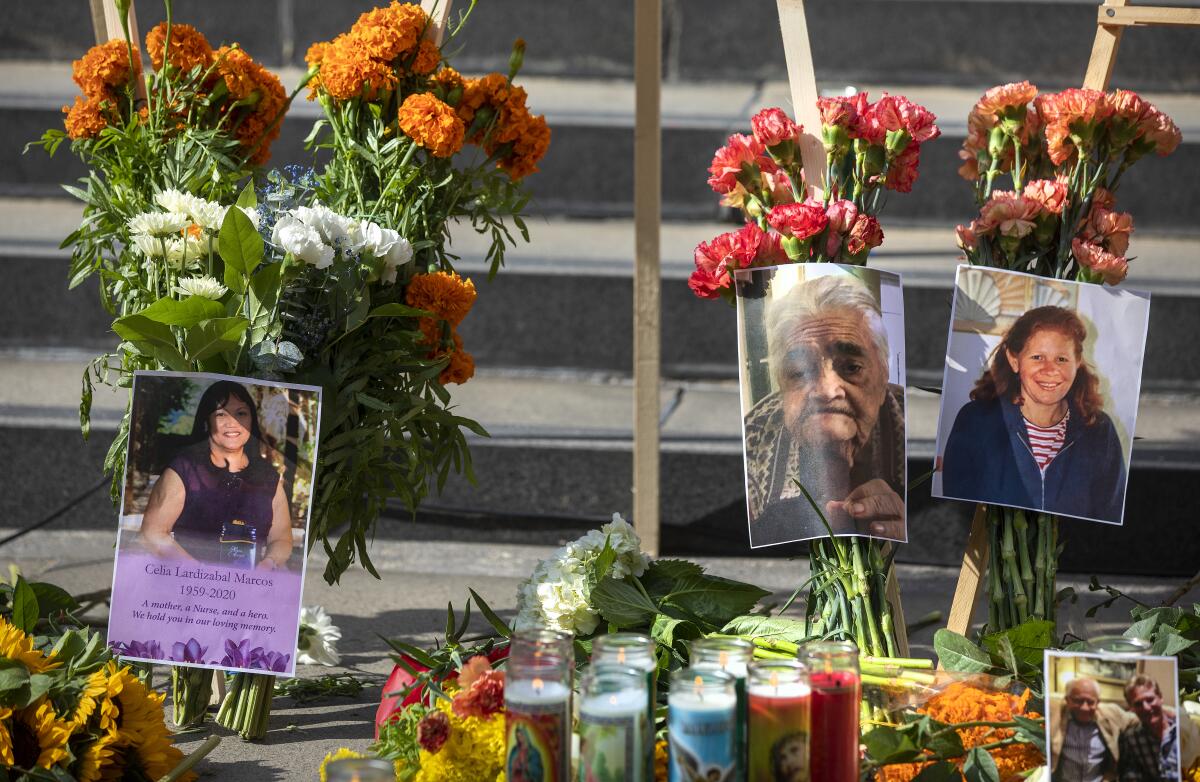
Ruth and Mohammed Nasrullah started their online memorial after pandemic deaths rose to more than 100,000: “What was being reported on the news was just numbers,” said Mohammed, a retired project manager who worked with NASA. “But no one was talking about the people behind those numbers. The memorial provides a way to grieve. Families visit it like you would go to a cemetery. They come with stories and leave messages.”
The stories were at once startling and common. A mother and father dying of the virus and leaving behind two young children; an elderly couple who perished within minutes of one another.
“The pandemic became its own period of time. It’s its own era,” said Ruth, whose memorial has been archived by the U.S. Library of Congress. “But we want to minimize and forget that terrible time. I still see people rolling their eyes when I wear a mask. The divisiveness is still there.”
Although it still influences voters’ attitudes, many people don’t mention the pandemic directly. It has been tucked away like a dark family history or a misbegotten war, even as its consequences play out daily. In the Pew survey, COVID was not listed by Americans as one of the top 20 concerns they see for the next president. “It’s not on anyone’s radar,” said Mohammed, who has been a local election judge for years. “The candidates don’t mention it. They look at the polls for the public’s priorities, and for 70 to 80% of the public, COVID is not an issue.”
Between March 31 and April 27, at least 1,589 people in the U.S. died from COVID. The latest vaccine booster is available, but the lines have long since dwindled. The country is engaged with other perils, although, at times, a mask can be glimpsed dangling from a stranger’s arm and a passing conversation can lead to memories of empty shelves and lockdowns.
“A bit of psychology has to come into this,” said Jackson. “You think about a big traumatic event. An individual is not going to realize the degree to which they changed their behavior. ... The same thing happens to a nation.”
More to Read
Get the L.A. Times Politics newsletter
Deeply reported insights into legislation, politics and policy from Sacramento, Washington and beyond. In your inbox three times per week.
You may occasionally receive promotional content from the Los Angeles Times.
